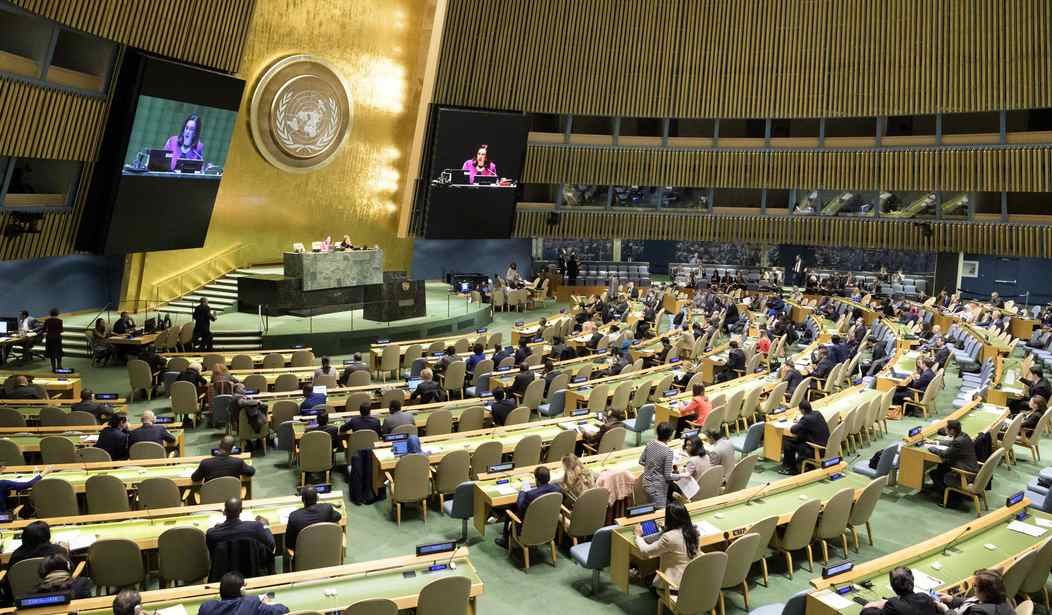It has taken 36 years, but at long last, UN silence has been broken on the 1988 massacre of up to 30,000 political prisoners in Iran. It took the dedication and exhaustive investigative skills of the UN Special Rapporteur on human rights in Iran, Javaid Rehman, a British-Pakistani academic and Professor of Islamic and International Law at Brunel University, London. In an explosive report presented to a special conference in Geneva on Thursday, June 19, 2024, organized by Justice for the Victims of the 1988 Massacre in Iran Association, Rehman described the heinous crimes and gross violations of human rights in Iran from 1981 to the 1988 massacre as a crime against humanity, genocide and possibly a war crime. The title of the report is: "Atrocity Crimes and Grave Violations of Human Rights Committed by the Islamic Republic of Iran (1981–1982 and 1988)."
Based on Rehman’s report, the UN now has irrefutable evidence of the summary execution of up to 30,000 supporters and members of the main democratic opposition movement - the People’s Mojahedin of Iran/Moj
In a tape recording of one of the Death Commission planning meetings, Khomeini’s nominated successor, Grand Ayatollah Montazeri, can be heard protesting that political prisoners, including women and even teenagers, were being hanged simply for supporting the PMOI/MEK opposition movement. Khomeini had instructed that the executions should be carried out in haste and that even pregnant women should not be spared. Because he had dared to complain, Montazeri was removed as Khomeini’s successor and detained under house arrest for the rest of his life. Montazeri’s son Ahmad, who released the top-secret tape recording, was also arrested, and sentenced to six years imprisonment.
Recommended
Unbelievably, Mostafa Pourmoha
Rehman told the conference: “In the past six months, I have been focused on writing this report. I began the report with two quotes. One of them is from Montazeri, who stated that this is the greatest crime in the history of the Islamic Republic, which will condemn our world, and the world will register you as criminals. This is very significant because Montazeri was the designated successor to Khomeini at that time, and he had insight into these crimes. The extent of the crimes became evident through Montazeri’s statement.
Rehman said the crimes he had investigated in detail involved murder, destruction, torture, sexual assault, and similar acts against different populations. The issue of enforced disappearances was also crucial, he noted. He said the key point of what happened in 1988 was that thousands of political prisoners were targeted and executed. They did not have fair trials. Khomeini issued a fatwa and declared that all “hypocrites,” a term he used to refer to those opposing his regime, should be eliminated. Khomeini also instructed the death commissions not to show any mercy and to disregard human rights.
“In my report," Rehman continued, "I emphasize the need for accountability due to the crimes against humanity and genocide that have taken place. This idea is the overarching theme of my report. This report is important because it directly affects the lives of people today. The survivors and victims continue to suffer, and the memory of those crimes persists. They have endured immense psychological and emotional pain. In many cases, the families of the forcibly disappeared individuals have been actively seeking their loved ones, while the authorities of the regime have violated their rights. They demand justice and accountability from the United Nations and its members.”
Rehman pointed out that there was a fundamental plan on which the execution orders were based. Many of those prisoners had not committed any crimes, he explained. Many of them were arrested for activities such as distributing brochures. Therefore, the actions of the Death Commissions were not to enforce the law but to simply execute those individuals. They were tasked with determining whether they were “loyal” or not. As a result, thousands of people were executed. “These prisoners were punished for their ideological and political positions” he said.
The report notes that everything was done in secrecy. No information was provided about the actions taken against these political prisoners, and their families remained uninformed. They were buried in mass graves. When families sought information, they either received no response or faced suppression, being told, “These individuals have gone to hell!” “The families suffered ongoing harassment, which continues to this day,” he said.
Rehman concluded his remarks by appealing to the international community to take concrete actions and establish an accountability mechanism that preserves all the evidence gathered by him, and accordingly take actions in terms of accountability and immunity of the Iranian regime leaders. The world will now watch the UN closely to ensure that Prof. Rehman’s recommendations are carried out. The 36-year wall of UN silence cannot be allowed to continue.

























Join the conversation as a VIP Member